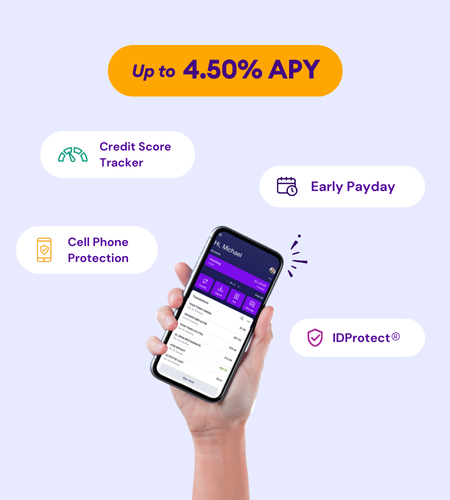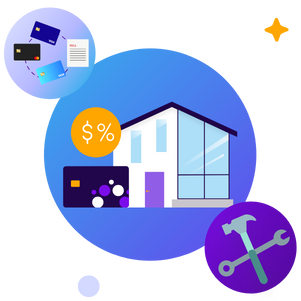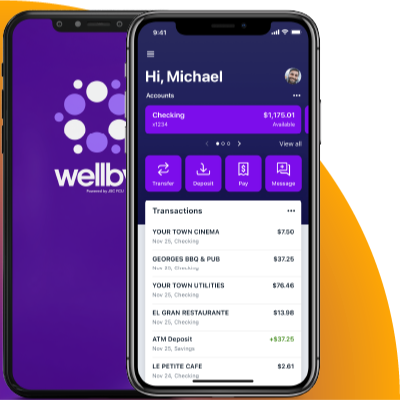December 12, 2024 | by Brian Truong

Understanding Mortgage Options for First-Time Homebuyers
May 31, 2024
By Brian Truong
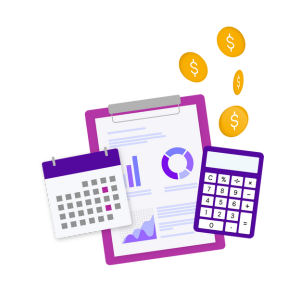 The dream of owning a home is shared by many, especially those ready to settle down and build a life. While exploring homes and even setting a budget are approachable tasks, often the biggest hurdle is understanding mortgages and securing the right mortgage for your home-buying plans.
The dream of owning a home is shared by many, especially those ready to settle down and build a life. While exploring homes and even setting a budget are approachable tasks, often the biggest hurdle is understanding mortgages and securing the right mortgage for your home-buying plans.
Navigating the realm of mortgages as a first-time homebuyer can be overwhelming. This guide is tailored to demystify the various mortgage options available, empowering you to make informed decisions when purchasing your dream home. The top three benefits of understanding mortgage options include:
- Accessing eligible mortgage programs
- Knowing how to build your budget for a mortgage
- Paying the slightest interest on your mortgage
At Wellby, we aim to empower clients with information and supportive financial services. Let’s dive into what every first-time home buyer needs to know about mortgages before you start applying.
Understanding Mortgage Basics
 First, let’s go into the basic structure of a mortgage and some key terms that will help you when reading about mortgage types and options.
First, let’s go into the basic structure of a mortgage and some key terms that will help you when reading about mortgage types and options.
A mortgage is a type of loan structured specifically for home purchases. Mortgages typically have a repayment schedule of 15 or 30 years, but this isn’t set in stone. Mortgages include a down payment, interest rate, and repayment structure and may require private mortgage insurance. Let’s break down what that means.
Down Payment - The downpayment is the amount of the home’s value you pay upfront, reducing the overall size of the loan. A larger downpayment can lower your interest rate and may eschew the need for PMI (private mortgage insurance).
Interest Rates - The interest rate is the amount you pay beyond the value of the mortgage loan. It’s what you pay the bank for the loan service, and is based on a percentage of the total borrowed amount. A high credit rating and a larger downpayment can decrease the interest rate, but the initial rate is based on the national interest rate.
Loan Terms - Loan terms determine how much you pay monthly, how long your mortgage will last, your interest rate, and your down payment.
Repayment Structures - Repayment structures relate to how much you pay per month and how long the loan lasts. For example, payments are lower on a 30-year mortgage than on a 15-year mortgage because you have longer to complete the loan - but total interest payments may be higher due to the longer duration.
Private Mortgage Insurance - PMI is required if your principal is less than 20% of the borrowed amount. This includes your downpayment. As soon as you have paid 20% of the home’s value, you can stop paying for PMI.
Closing Costs - Closing costs is a term that refers to the many expenses involved in completing a home purchase. This includes the loan origination fee, typically about 1% of your mortgage value. Total closing costs generally are about 6% of your mortgage value.
Types of Mortgages
There are five typical types of mortgages. We’ll explore each one in the sections below.
- Fixed-Rate Mortgages
- Adjustable-Rate Mortgages
- FHA Loans
- VA Mortgages
- USDA Loans
Fixed-Rate Mortgages
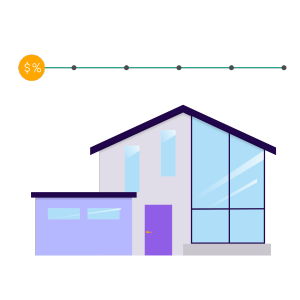 Fixed-rate mortgages lock in your interest rate when you sign the loan terms. This ensures that your mortgage payments remain steady and predictable for the entire duration of the loan. They are ideal for long-term financial planning and security.
Fixed-rate mortgages lock in your interest rate when you sign the loan terms. This ensures that your mortgage payments remain steady and predictable for the entire duration of the loan. They are ideal for long-term financial planning and security.
This offers the advantage that rates will not rise if national interest rates go up, but your rates will not lower if national interest rates go down.
Adjustable-Rate Mortgages (ARMs)
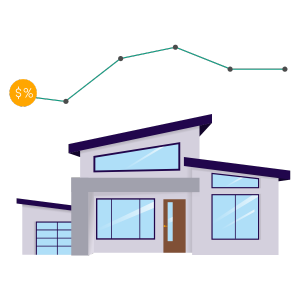 Adjustable-rate mortgages, or ARMs, allow the interest rate of your mortgage to fluctuate based on market conditions and the national interest rate. ARMs often have a fixed rate for a certain period before the changes begin.
Adjustable-rate mortgages, or ARMs, allow the interest rate of your mortgage to fluctuate based on market conditions and the national interest rate. ARMs often have a fixed rate for a certain period before the changes begin.
This offers the advantage of lower rates if market conditions improve but higher rates if the national or market rates go up. An ARM may appeal to buyers with specific financial goals that you should discuss with your mortgage broker or financial manager.
FHA Loans
FHA loans are mortgages backed by the Federal Housing Administration. They offer a lower down payment requirement and more flexible qualification criteria, helping people to buy a house whom banks might otherwise turn away. FHA loans target first-time homebuyers, and they include accessible financing options and lower credit score requirements.
VA Loans
 The Veterans Association offers VA loans, which are available exclusively for veterans, active-duty service members, and their spouses, to help soldiers and veterans buy homes. VA loans require no down payment and offer particularly competitive interest rates.
The Veterans Association offers VA loans, which are available exclusively for veterans, active-duty service members, and their spouses, to help soldiers and veterans buy homes. VA loans require no down payment and offer particularly competitive interest rates.
Among the unique advantages of VA loans is that PMI is not required and closing costs are limited, making VA home purchases much more affordable than typical mortgages and home-buying deals.
USDA Loans
 The U.S. Department of Agriculture backs USDA loans. They are designed to promote homeownership in rural and some suburban areas. USDA loans also require no down payment and offer competitive interest rates. However, limitations include both buyer and property eligibility.
The U.S. Department of Agriculture backs USDA loans. They are designed to promote homeownership in rural and some suburban areas. USDA loans also require no down payment and offer competitive interest rates. However, limitations include both buyer and property eligibility.
USDA loans are only available for rural single-family homes of a modest size or price range. Some far-flung suburbs also qualify.
Choosing the Right Mortgage for You
How do you select a mortgage that suits your financial situation, home-buying plans, long-term goals, and personal preferences? This is a crucial decision to make and one that will involve comparing several mortgage offers before you find the right one.
- First, determine the mortgage amount you must borrow for your home purchase.
- Determine your total home-buying budget
- Calculate how much you can afford to pay per month
- Determine your budget for down payments and other up-front costs
- Second, decide whether you would prefer a fixed or adjustable-rate mortgage.
- Third, decide whether you want a 15-year or 30-year mortgage.
- Next, determine if you qualify for unique loan opportunities, such as VA or USDA loans.
- Most first-time homebuyers qualify for FHA loans, so explore these opportunities.
From there, select mortgages that you are eligible for and compare their terms, interest rates, and fees. Calculate the total up-front and long-term cost of each one for the same size of loan to find the most affordable mortgage. Compare terms that you find favorable and decide on their value in your calculations.
This will help you identify a few top mortgages that suit your needs. The final step is to complete your mortgage applications and select the best one you are approved for.
Explore Affordable Mortgages with Wellby
When buying your first home, it’s essential to understand the diverse range of mortgage options available. This is your opportunity to explore your financial options thoroughly and seek guidance from mortgage professionals to find the best fit for your homeownership journey.
Related Topics
Brian Truong was born in Canada (cool, eh?) and grew up in Sugar Land, Texas. Brian has over 12 years of SEO and marketing experience in a wide array of industries, including finance and real estate. When he’s not flexing his SEO and web development superpowers, he enjoys video games, anime, horror movies, and spending time with his cat, Chi.
Related articles you might like
November 20, 2024 | by The Team at Wellby
How Our New Digital Tools Will Enhance Your Member Experience
October 29, 2024 | by Brian Truong
